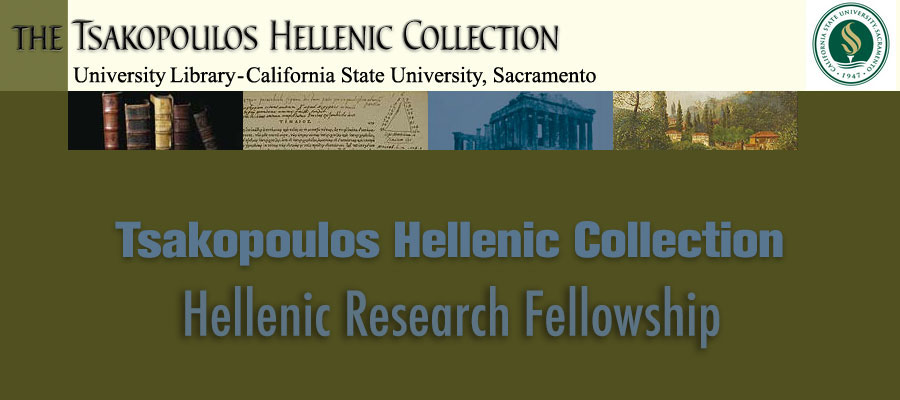Thanks to generous ongoing funding from the Elios Charitable Foundation, the Tsakopoulos Hellenic Foundation, and the Tarbell Family Foundation, the University Library at California State University, Sacramento is pleased to offer the continuation of the Hellenic Research Fellowship Program (HRFP) for an 11th year. The Program supports the use of the Tsakopoulos Hellenic Collection by fellows for scholarly research in Hellenic studies while in residence in Sacramento, CA.
The HRFP provides a limited number of fellowships ranging from $1,500 to $5,000 in the form of reimbursement to help offset transportation and living expenses incurred in connection with the awards.
The Program is open to external researchers anywhere in the world at the graduate through senior scholar levels (including independent scholars) working in fields encompassed by the Collection's strengths who reside outside a 75-mile radius of Sacramento. The term of fellowships can vary between two weeks and three months, depending on the nature of the research, and for the current cycle will be tenable from September 1, 2023-August 31, 2024.
Consisting of the holdings of the former Speros Basil Vryonis Center for the Study of Hellenism, the Tsakopoulos Hellenic Collection is the premier Hellenic collection west of the Mississippi and one of the largest of its kind in the country, currently numbering approximately 80,000 volumes and over 450 linear feet of archives. It comprises a large circulating book collection, journal holdings, electronic resources, non-print media materials, rare books, archival materials, art and artifacts. With its focus on the Hellenic world, the Collection contains early through contemporary materials across the social sciences and humanities relating to Greece, the Balkans, the Ottoman Empire and modern Turkey, and the surrounding region, with particular strengths in Byzantine, post-Byzantine, and Modern Greek studies, including the Greek diaspora worldwide. There is a broad representation of over 20 languages in the Collection, with a rich assortment of primary source materials.
